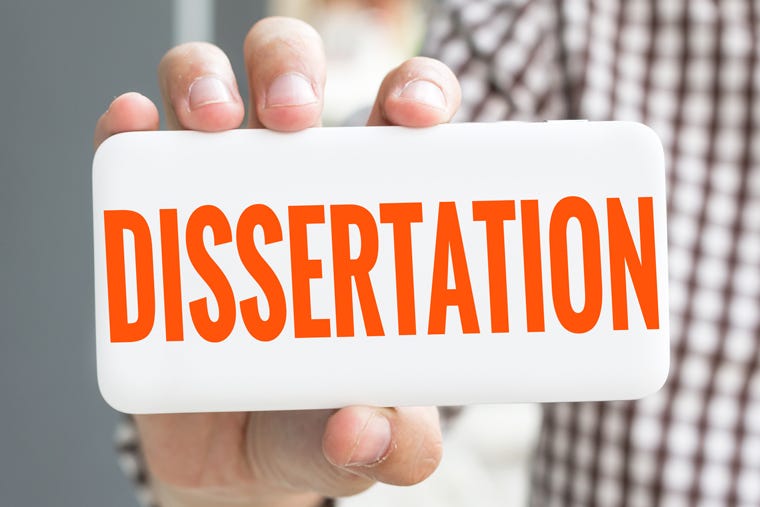

How to Write and Present your Dissertation
The final year project, more formally known as a dissertation is one of the toughest challenges of your degree.
This long piece of writing should detail research in the field of your choice of study and basically represent your skills as a researcher, thinker and communicator. It’s your opportunity to flex your intellectual muscles..
So why do many of us feel totally overwhelmed when faced with a large writing task?
Start by thinking about which topics you might want to cover then research, research, and research before you start. List lots of potential sources to ensure you have enough information to inspire a strong and cohesive argument. As you start researching remember to take notes and references so that you can easily find them to go back to.
TOP TIP: Using Google Scholar can be a useful tool for your ongoing research
The final year project, more formally known as a dissertation is one of the toughest challenges of your degree.
This long piece of writing should detail research in the field of your choice of study and basically represent your skills as a researcher, thinker and communicator. It’s your opportunity to flex your intellectual muscles..
So why do many of us feel totally overwhelmed when faced with a large writing task?
Start by thinking about which topics you might want to cover then research, research, and research before you start. List lots of potential sources to ensure you have enough information to inspire a strong and cohesive argument. As you start researching remember to take notes and references so that you can easily find them to go back to.
TOP TIP: Using Google Scholar can be a useful tool for your ongoing research
Research Strategy
When conducting your initial research, start by pulling together an outline and mapping out the topics you want to address.
Start by developing a research question – What are you going to be investigating?
What is your argument or thesis – What do you want to explore, prove or disprove?
What are your limits – Give yourself boundaries of what you will and won’t be investigating to ensure that you don’t go off on a tangent
Primary research –Consider conducting your own primary research, it’s not as daunting as you might think. It can be as simple as holding your own focus groups, asking friends and family or even people on the street. You can even easily create your own online survey with tools such as SurveyMonkey or Google Forms.
TOP TIP: If struggling to come up with a research strategy try speaking to your lecturers and professors as they will have great advice for you on where to start
Conducting research takes time, so start as early as possible, plan to set aside an hour a day dedicated to research. Leaving this until the last minute means you run out of time to ensure you have the best possible sources to draw your arguments, methods, and conclusions from.
During your research, you will read a number of sources such as scholarly articles and publications. Some of these will be easier to read than others, some you won’t want to put down and others will be tough to digest but you must persevere. When you do find an article or piece of research that is well written, study the structure and how arguments are presented, this will help with your own writing methods.
Work on your structure
Where to start? It may be a tempting prospect to start at the beginning, but introductions are often a lot easier to write at the end when you know how your argument has developed.
Use a recommended structure such as the example detailed below. Adding sub-headings to each section gives the reader clear breaks and direction in your content.


As you write your dissertation, aim to give full weight to your key points by giving each a sentence of their own. Elaborations, examples, and detail can be added in subsequent sentences.


Allow plenty of time for writing and it’s a good idea to get proofs read by your peers for feedback.


Be prepared to work through at least 3 drafts. You should refine your work each time before you are happy with the end result. If you find that you have more than 5 draft documents, then perhaps check and revisit your plan and outline to ensure you do not lose sight of your end goals and what you set out to write.
Acknowledging ideas
Use the work of others as evidence to back up your own argument, critically evaluate the ideas presented, and identify what problems remain in your chosen area of research.
The professor reading your dissertation will be on the lookout for plagiarism so make sure your referencing is clear and accurate to gain those all-important top grades.
TOP TIP: Use a plagiarism checker such as Turnitin.com or Grammarly once you are in the final stages of writing, to ensure there are no areas in your essay that would be flagged for imitation!


Perfecting your bibliography and reference list
A Reference List
Is a comprehensive list of all the reading detail cited in your work and all the articles and books you have used to pull together your arguments.
A bibliography list
Is list of background reading material that you have read as part of your research, but not cited in your dissertation or thesis.
There are lots of different referencing style guides such as those set out by the Arts and Humanities Research Council or the Medicines & Healthcare products Regulatory Agency, or of course Harvard. Your academic department will be sure to tell you which one they use, and you will need to follow instructions to the letter. Some universities require that you provide your reference list separate from your bibliography, so it’s clear to see the cited sources and non-cited sources. Others request that you have all listed as one in a bibliography.
It’s also very important to make sure that the majority of your references and cited works are identified as either primary or secondary sources.
Primary sources - will typically include original works, academic material such as peer-reviewed journals or publications relevant to the field, or may also include interviews or any other original piece of artefact used in the creation of your narrative.
Secondary sources - will include items such as newspaper articles, blogs, Wikipedia (yes, even Wikipedia can be useful, but it must stand up alongside any primary sources you use). A good way to think of secondary sources is that they are sources which analyse or provide a statistical analysis for your primary sources.
Great Presentation = Easy Marks
Once finished your dissertation should be professionally printed and bound.
There are lots of different ways to go about this, some universities have their own printing services available on site.
However, if you want to stand out from the crowd and create something with impact, look at different colour options, finishes and paper types.
Ryman offer a full printing and binding service for your dissertation.
You can visit any of our Ryman stores to see all of the different binding options and finishes we have available or you can call 0333 103 0901, where one of our colleagues will be more than happy to talk you through the different options.
It is always advised that you bind more than one copy to ensure you have a backup or and one to keep. What could be more rewarding than sentimentally reviewing your thesis years after you have finished your course, a great way to remember the blood, sweat and tears!
A quick guide to binding and professional printing, know your options…


Need more advice?
Most university departments provide detail around how dissertations are reviewed and marked providing guidelines for students to follow. It is strongly advised that you make sure you are clear on what the guidelines are, then you can understand where the “goal posts” are and what your professors will be looking for.
Never be afraid to ask for help, as this is the best way to ensure the success of your dissertation. Speak to your professors and lecturers to get the best advice possible, and finally good luck, we hope this article helps you write your dissertation and we wish you all the best for your future!
This article was written in partnership with Abiodun Yusuf – Ph.D. Researcher in Computing and Creative Technologies at Leeds Beckett University and Gemma Lennon, our recent graduate at Ryman.











